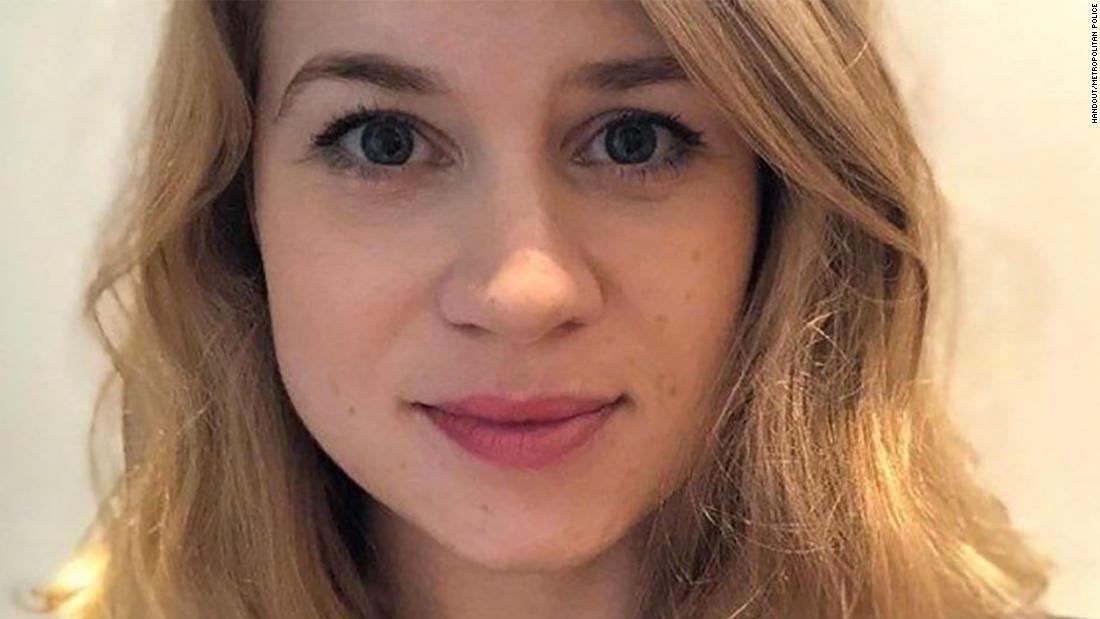Officer Wayne Couzens, 48, is due to appear at the Westminster Magistrates’ Court on Saturday for his first hearing, according to the Crown Prosecution Service (CPS).
Everard disappeared on March 3 while walking through Clapham, in south London, which led to an extensive police search in the area.
Her remains were found more than 50 miles from where she was last seen. A post-mortem examination will now take place on Everard’s remains.
Couzens, a police officer whose “primary role was to uniformly patrol diplomatic facilities”, was arrested in Kent on Tuesday. He was charged on Friday, according to a statement from Rosemary Ainslie, head of special crimes at the CPS.
The Independent Office for Police Conduct, the police enforcement agency, said in a statement on Thursday that it had started an independent investigation into police actions involving the suspect.
Many also exchanged notes about the usual precautions they take to try to stay safe when they walk alone – like squeezing the keys between their knuckles, pretending to be talking to someone on the phone, or not wearing headphones at night – and expressed their anger and frustration that it seems like a necessary step.
Couzens joined the Met in September 2018, where he joined a response team covering the Bromley area in south-east London. He then moved to the Parliamentary and Diplomatic Protection Command in February 2020, where his “main role was to uniformly patrol diplomatic facilities, mainly a series of embassies,” said the Met statement.
Nick Ephgrave, Assistant Commissioner of the Metropolitan Police, said on Friday that he understood that “women in London and the general public, particularly those in the area where Sarah has disappeared, will be concerned and may well be frightened”, and that Londoners could expect an increase in the number of police on the streets in the coming days.
“I know the public is hurt and angry about what happened. And those are the feelings that I personally share, and I know my colleagues here at Scotland Yard and across the Met as well,” said Ephgrave.
‘Reclaim the Streets’
A series of vigils was planned for Saturday across the country, including at Clapham Common, a green space where Everard walked around 9 pm local time as he headed for his home in Brixton.
The “Reclaim These Streets” events were canceled after London police said the vigil could not go ahead, citing restrictions on the coronavirus, organizers said in a statement on Saturday.
“We were very disappointed because, given the many opportunities to engage constructively with the organizers, the Metropolitan Police did not want to commit to anything. Although we had positive discussions with the Lambeth officials present, Scotland Yard officials did not accept our suggestions. to help ensure that a legal and protected vigil by Covid can take place, “the organizers said in the statement.
Instead, the group will be raising £ 32,000 (approximately $ 44,544) for women’s causes, which would also cover £ 10,000 (about $ 13,920) of possible fines for the 32 vigils that have been programmed across the country.
More than 70% of women interviewed by UN Women in the UK said they had experienced sexual harassment in public spaces. That number rose to 97% among women aged 18 to 24, the survey showed. The data, released on Wednesday, were taken from a YouGov survey of more than 1,000 women commissioned by the United Nations Women in the United Kingdom in January 2021.
The organization’s research also suggested that women have little faith in public institutions to deal with the situation.
“Only 4% of women told us that they reported harassment incidents to an official organization – with 45% of women saying that they did not believe that the complaint would help change anything,” said UN Women in the United Kingdom.
Women are not the only ones to feel threatened on the streets; men are more likely to be victims of violent crimes involving strangers and acquaintances than women, according to the Crime Survey for England and Wales, published by the UK Office for National Statistics (ONS).
But government data shows that men are much more likely to be prosecuted for acts of violence against women and men. During the three-year period ended in March 2020, the vast majority of suspects convicted of homicide were male – 93% of the total, according to an ONS report on homicide.
CNN’s Flo Davey-Attlee and Livvy Doherty contributed to this report.
